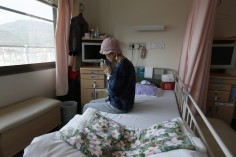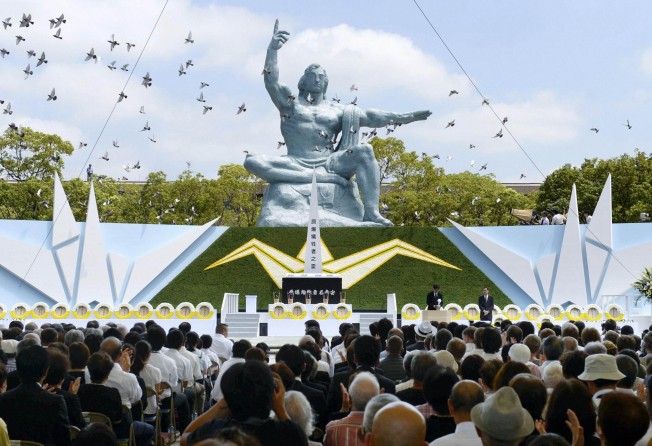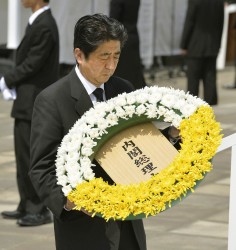
Nagasaki marks 68th anniversary of US atomic bombing

Nagasaki’s mayor has criticised Japan’s government for failing to sign on to an international nuclear disarmament effort as the country marked the 68th anniversary Friday of the atomic bombing of his city.
Mayor Tomihisa Taue’s criticism stemmed from Japan’s refusal to sign in April a document in which nearly 80 countries unconditionally pledged to never use nuclear weapons.
He said Japan’s inaction “betrayed expectations of the global community.”
The document, prepared in Geneva by a UN committee, is largely symbolic because none of the signatories possess nuclear weapons. None of the countries known to have a nuclear arsenal including the United States, Russia, India and Pakistan signed it.
Japan also does not possess a nuclear device and has pledged not to produce any although some hawkish members of the ruling party say the country should consider a nuclear option.
Taue said that as the world’s only victim of atomic bombing, Japan’s refusal to come on board the initiative contradicted its non-nuclear pledge.
“I call on the government of Japan to return to the origin of our pledge as an atomic-bombed country,” he said at a peace park near the epicentre of the blast.
Tokyo apparently refused to sign the document because of a security arrangement with the United States, which in theory could give the US an option to deploy nuclear weapons from Japan to counter the threat of North Korea.
That implied Japan’s government would approve a nuclear option under some circumstances, Taue said.
About 6,000 people including US Ambassador John Roos attended Friday’s ceremony after offering silent prayers for the victims of the atomic bombings - on Nagasaki on August 9, 1945 and on Hiroshima three days earlier. The bombings prompted Japan’s surrender in World War II. The Hiroshima blast killed 140,000 people, and another 70,000 died in Nagasaki.
Taue also expressed concerns about Japan’s resumption of negotiations with India toward a nuclear cooperation agreement.
Nuclear power became an issue after the March 2011 earthquake and tsunami virtually destroyed the Fukushima nuclear plant, which spewed radiation and forced the evacuation of tens of thousands of people. Taue offered his support for the reconstruction of Fukushima.
Despite the public’s safety concerns about nuclear energy since the Fukushima crisis, Prime Minister Shinzo Abe has been aggressively pushing to export nuclear plants and technology to emerging countries, including Turkey and Vietnam, and trying to step up cooperation with France and India.
In a speech almost identical to one he read in Hiroshima three days ago, Abe also made no mention of the people displaced by Fukushima, nor the dilemma Japan is facing over the nuclear energy.
Abe said Japan as the sole country to face nuclear attacks has the duty to achieve a nuclear-free world and keep telling the inhumane side of nuclear weapons to younger generations around the world.
Taue said nuclear cooperation with India would render the global Nuclear Non-Proliferation Treaty toothless.
India is not a signatory to the NPT treaty, which it calls discriminatory because it recognises only five countries including the United States as nuclear weapon states. All others who tested theirs after 1968 are required to give up nuclear weapons. India tested its device in 1974.
